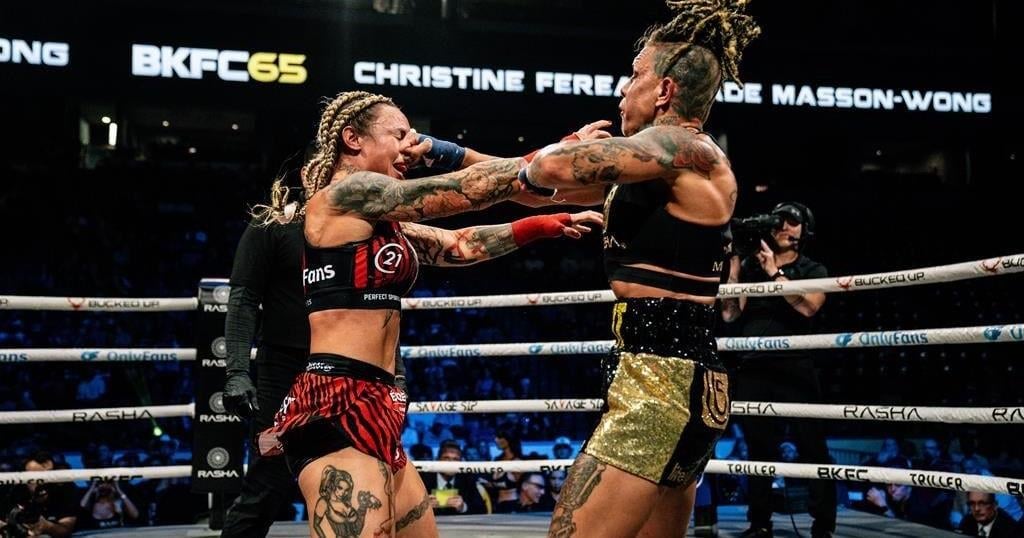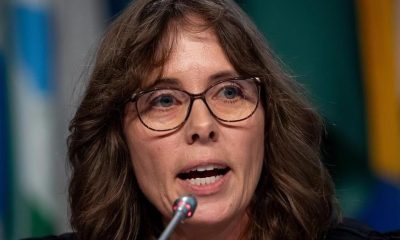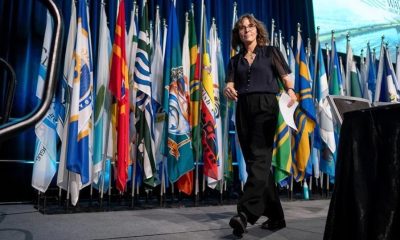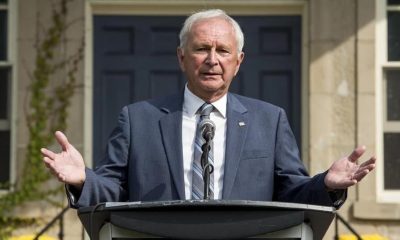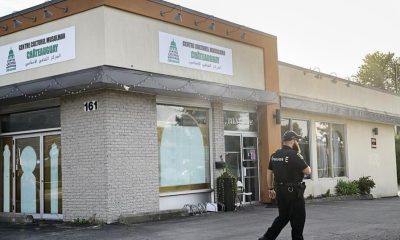With an ownership stake in the Bare Knuckle Fighting Championship, Quebec’s Allrem Sports & Entertainment has a vested interest in seeing the promotion flourish in Canada.
BKFC has held two cards to date in Canada, both at the River Cree Resort and Casino in Enoch, Alta. — an Indigenous-owned venue on Treaty 6 territory. But it has to convince provincial regulatory bodies elsewhere to sanction the sport.
And that’s where Allrem comes in.
Allrem president Erik de Pokomandy is targeting first Quebec and then Ontario, saying there have already been discussions with Quebec’s Régie des alcools, des courses et des jeux, the provincial regulatory board overseeing combat sports.
“Typically the UFC paved the way for amending regulations,” de Pokomandy said in an interview. “Since BKFC is more relatable to boxing, we think it’s going to happen. It’s just a matter of time.”
The UFC followed a similar path with Marc Ratner, a former executive director of the Nevada State Athletic Commission who is now the UFC’s senior vice-president of regulatory affairs, leading the fight for mixed martial arts to secure official sanctioning from local commissions.
“Our goal is to work with all the provinces, to make sure that we comply with the regulations. We know it’s a journey. We’re aware of that,” said de Pokomandy. “They’re doing their job.”
“We believe we have a good case,” he added, saying he expects progress in eight months to a year.
Allrem is working with a consultant who previously helped the UFC open up Canadian jurisdictions to MMA.
Clearly there is work to do, as shown by this statement from the Office of the Athletics Commissioner, which oversees pro combat sports in Ontario, when asked about the status of bare-knuckle fighting.
“There are only three professional combative sports regulated under the Athletics Control Act by the Office of the Athletics Commissioner — boxing, kickboxing and mixed martial arts,” said the statement, provided to The Canadian Press. “Currently, bare-knuckle boxing is illegal in Ontario.”
BKFC has held shows in 17 states, including California and New York, as well as Canada, England, Mexico, Bulgaria and Thailand.
And BKFC is on the move, having staged 23 shows already this year. Next up is an Oct. 12 card in Marbella Spain, with BKFC 67 to follow Oct. 25 in Denver.
BKFC bouts are contested in a ring with five two-minute rounds. Fighters are permitted to wrap and tape the wrist, thumb and mid-hand, but no gauze or tape can be within 2.5 centimetres of the knuckles. Punches are the only strike allowed.
Without the benefit of gloves, cuts are common. And they can lead to doctor-mandated stoppages, which prevent the losing fighter from taking more damage.
Both Canadian cards to date, in March and August, were so-called “Prospect” shows featuring new talent, although the March event featured Quebec’s Jade Masson-Wong, the No. 1 contender in the flyweight division who lost a decision to champion Christine (Misfit) Ferea earlier this month at BKFC 65 in Salt Lake City.
In August, Edmonton welterweight Drew (Wild Boy) Stuve defeated Sonny (The Savage) Smith, a former member of the United Kingdom Special Forces,by second-round TKO in the main event.
“There’s a lot of BKFC fans in Canada and they want to see it live,” said de Pokomandy.
Based in the Montreal area, Allrem is also involved in the NASCAR Canada Series, Nissan Sentra Cup, zMax CARS Tour, and has an investment in Les Pétroliers de Laval of the North American Hockey League (LNAH), a semi-pro circuit known for its pugilistic nature.
“The fan is the same,” said de Pokomandy. “The demographic of the fan is the same in NASCAR Canada, is the same in BKFC — and is the same in NASCAR U.S. — as well and is the same as the North American Hockey League.”
“We call it our eco-system of sports properties,” he added.
Evirum, a sister company involved in waste management and recycling, is a presenting partners, along with Pinty’s, of the NASCAR Canada Series.
Allrem has already began cross-promotion with the BKFC logo on the hood of its NASCAR Canada entry, which he says has proved to be popular with fans.
“Funnily enough, they want to take a picture not with the car or the driver, they want to take a picture with the hood,” said de Pokomandy.
Triller, a social media company that expanded into fight promotion, acquired a “majority stake” in BKFC in early 2022. McGregor Sports and Entertainment, run by former UFC champion Conor McGregor, subsequently became a part-owner.
In a February interview, BKFC founder and president David Feldman said viewership numbers in Canada have been “really good,” with BKFC looking to strike a deal for a bigger platform (a three-year worldwide broadcast deal was announced with the DAZN streaming service last week, slated to kick off with next month’s show in Spain).
“Canada’s a great market,” he said. “I think that bare-knuckle fighting can really resonate with Canadians, really probably more than anyone — I said this from when I started it — because of the hockey, because of the hockey culture. Throwing off the gloves and getting into good old-fashioned bare-knuckle fights.”
—
Follow @NeilMDavidson on X platform, formerly known as Twitter
This report by The Canadian Press was first published Sept. 20, 2024




